The Great Patriotic War, which became the most bloody in the history of mankind and lasted almost 4 years, was reflected in the heart of each cruel tragedy, which claimed the lives of millions of people.
People of the pen: the truth about war
Despite the growing temporal distance between those distant events, interest in the topic of war is constantly growing; the current generation does not remain indifferent to the courage and feats of Soviet soldiers. A great role in the truthfulness of the description of the events of the war years was played by the word of writers and poets, apt, uplifting, guiding-inspiring. It was they — writers and front-line poets who, having spent their youth on the battlefields, brought to the modern generation the history of human destinies and actions of people on whom life sometimes depended. The writers of the bloody wartime truthfully described in their works the atmosphere of the front, the partisan movement, the severity of campaigns and life in the rear, strong soldierly friendships, desperate heroism, betrayal and cowardly desertion.
War-born creative generation
Front-line writers are a separate generation of heroic personalities who have experienced the hardships of the military and post-war period. Some of them died at the front, others lived longer and died, as they say, not from old age, but from old wounds.
The year 1924 was marked by the birth of a whole generation of war veterans known throughout the country: Boris Vasiliev, Victor Astafiev, Julia Drunina, Bulat Okudzhava, Vasil Bykov. These front-line writers, whose list is far from complete, faced the war at the moment when they were only 17 years old.
Boris Vasiliev is an extraordinary person
Almost all the boys and girls of the 20s did not manage to escape during the terrible wartime. Only 3% survived, among which Boris Vasiliev was a miracle.
He could die in the 34th year from typhoid, in the 41st surrounded, in the 43rd - from a mine stretch. The boy volunteered for the front, went through cavalry and machine gun regimental schools, fought in the airborne regiment, and studied at the Military Academy. In the post-war period, he worked in the Urals as a tester of tracked and wheeled vehicles. He was discharged with the rank of engineer-captain in 1954; the reason for demobilization is the desire to engage in literary activity.
The author devoted such works to the military theme as “Did not appear on the lists”, “There was a war tomorrow”, “Veteran”, “Do not shoot at white swans”. Boris Vasiliev became famous after the publication in 1969 of the story “Dawns Here Are Quiet ...”, staged in 1971 by Yuri Lyubimov on the Taganka Theater and filmed by Stanislav Rostotsky in 1972. According to the scripts of the writer, about 20 films were shot, among which “Officers”, “Tomorrow was the war”, “Ata-bats, soldiers went ...”.
Front-line writers: biography of Victor Astafiev
Viktor Astafyev, like many front-line writers of the Great Patriotic War, in his work showed the war as a great tragedy, seen through the eyes of a simple soldier - the man who is the basis of the entire army; it is him who receives punishment in abundance, and awards bypass him. This collective, half-autobiographical image of a front-line soldier, living the same life with his comrades and accustomed to fearlessly face death, Astafyev largely wrote off himself and his front-line friends, contrasting it with the back-ground survivors, who for the most part lived in a relatively harmless front-line zone throughout war. It was to them that he, like other poets and front-line writers of the Great Patriotic War, experienced deepest contempt.
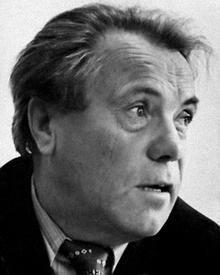
The author of such well-known works as “The King of Fish”, “Cursed and Murdered”, “The Last Bow” for his alleged adherence to the West and the propensity for chauvinism, which critics saw in his works, was cast at the mercy of fate by the state, who fought and was sent to die in his native village. It was such a bitter price that Viktor Astafyev, a man who never refused to write, had to pay for the desire to tell the truth, bitter and sad. The truth, which front-line writers of the Great Patriotic War did not keep silent in their works; they said that the Russian people, who not only won, but also lost much in themselves, at the same time as the influence of fascism, experienced the oppressive influence of the Soviet system and their own internal forces.
Bulat Okudzhava: a hundred times the sunset blushed ...
The poems and songs of Bulat Okudzhava (“Prayer”, “Midnight Trolley”, “Cheerful Drummer”, “Song of Soldier's Boots”) are known to the whole country; his novels “Be healthy, schoolboy”, “A Date with Bonaparte”, “The Journey of Amateurs” are in some of the best works of Russian prose writers. Famous films - “Zhenya, Zhenechka and Katyusha”, “Fidelity”, the screenwriter of which he was, was watched by more than one generation, as well as the famous “Belorussky Train Station”, where he performed as a songwriter. The repertoire of the famous poet and singer contains about 200 songs, each of which is filled with its own story.
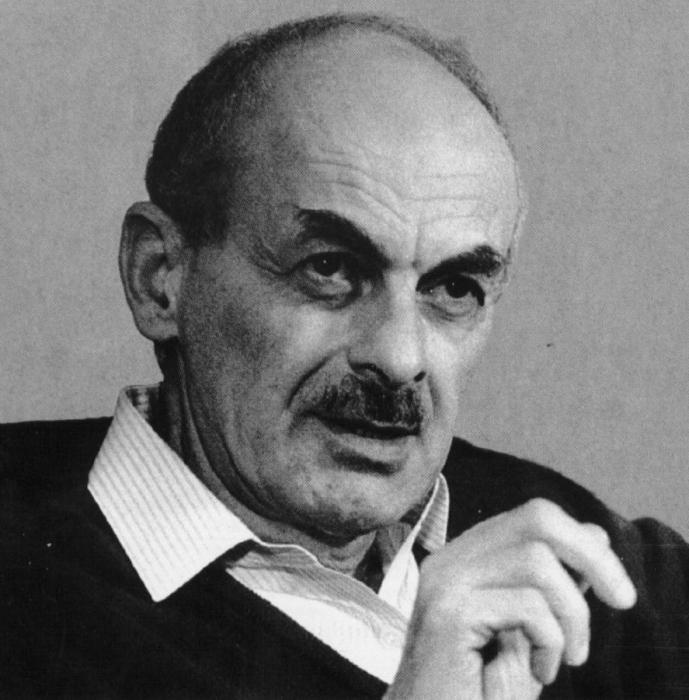
Bulat Okudzhava, like other front-line writers (photo can be seen above) was a striking symbol of his time; his concerts have always been sold out, despite the absence of posters about his performances. Spectators shared their impressions and brought their friends and acquaintances. The song “We Need One Victory” from the movie “Belorussky Station” was sung by the whole country.
Bulat met the war at the age of seventeen, having left after the ninth grade as a volunteer. An ordinary soldier, a mortar man, who fought mainly on the North Caucasus Front, was wounded from an enemy aircraft, and after being cured he fell into the heavy artillery of the High Command. As Bulat Okudzhava (and his colleagues, front-line writers) agreed with him, everyone in the war was afraid, even those who considered themselves braver than the rest.
War through the eyes of Vasil Bykov
A native of the Belarusian peasant family, Vasil Bykov went to the front at the age of 18 and fought before the Victory, passing through countries such as Romania, Hungary, Austria. Was wounded twice; after demobilization he lived in Belarus, in the city of Grodno. The main theme of his works was not the war itself (historians should write about it, not front-line writers), but the possibilities of the human spirit, manifested in such difficult conditions. A man should always remain a man and live in good conscience, only in this case the human race is able to survive.
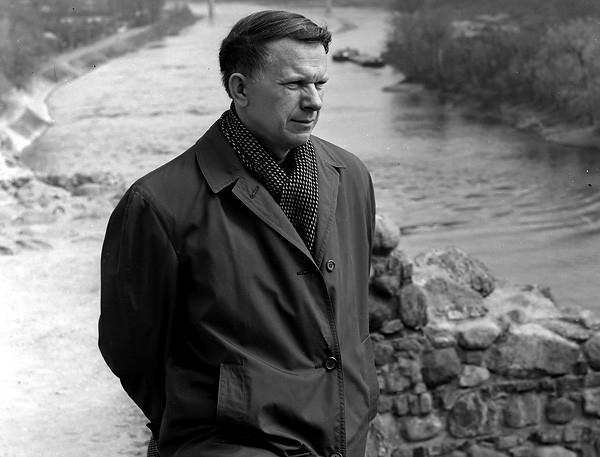
The peculiarities of Bykov's prose became the reason for the accusations of Soviet critics of desecrating the Soviet fret. Widespread persecution was arranged in the press, censorship of the release of his works, their prohibition. Due to such persecution and a sharp deterioration in health, the author was forced to leave his homeland and live in the Czech Republic (his country of sympathy) for some time, then in Finland and the Federal Republic of Germany.
The most famous works of the writer: “The Death of a Man”, “Crane Cry”, “Alpine Ballad”, “Kruglyansky Bridge”, “It Doesn’t Hurt the Dead”. As Chingiz Aitmatov said, Bykov was saved by fate for honest and truthful creativity on behalf of a whole generation. Some of the works were filmed: "Live Until Dawn", "Third Rocket."
Front-line writers: about the war in verse
The talented girl Julia Drunina, like many front-line writers, went to the front as a volunteer. In 1943, she was seriously wounded, due to which she was recognized as disabled and commissioned. Then came back to the front, Julia fought in the Baltic states and the Pskov region. In 1944, she was again shell-shocked and declared unsuitable for further service. With the rank of foreman, the Order of the Red Star and the medal "For Courage", Julia after the war released a poem collection "In the Soldier's Overcoat" dedicated to front-line time. She was accepted into the Writers' Union and forever enlisted in the ranks of front-line poets, referring to the military generation.
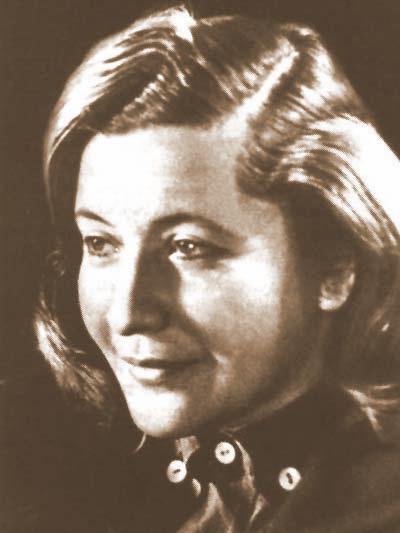
Along with the work and release of such collections as “Anxiety”, “You Are Near”, “My Friend”, “Country - Youth”, “Trench Star”, Julia Drunina was actively engaged in literary and public work, was awarded prestigious prizes, more than once was elected a member of the editorial boards of central newspapers and magazines, secretary of the board of various unions of writers. Despite universal respect and recognition, Julia completely devoted herself to poetry, describing the role of the woman in the war, her courage and tolerance, and the incompatibility of the life-giving female principle with murder and destruction in verses.
Yuri Bondarev: the fate of man
Front-line writers and their works made a significant contribution to literature, bringing to the descendants the veracity of the events of the war years. Perhaps one of our relatives and relatives fought shoulder to shoulder with them and became the prototype of stories or stories.
In 1941, Yuri Bondarev - the future writer - along with his peers participated in the construction of defensive fortifications; after graduating from the infantry school, he fought at Stalingrad as commander of a mortar crew. Then the concussion, a slight frostbite and a wound in the back, which did not interfere with returning to the front, participating in the liberation of Kiev, went a long way to Poland and Czechoslovakia. After demobilization, Yuri Bondarev entered the Literary Institute . Gorky, where he happened to get to a creative workshop led by Konstantin Paustovsky, who instilled in the future writer a love of the great art of writing and the ability to say his word.
Throughout his life, Yuri remembered the smell of frozen, stone-hard bread and the aroma of
soldier's porridge, the burns of cold in the steppes of Stalingrad, the icy cold of frost-calcined guns, the metal of which was felt through the gauntlets, the powder stench of spent cartridges and the desolate silence of the night starry sky. The creativity of front-line writers is permeated by the acuteness of man's unity with the Universe, his helplessness and at the same time incredible strength and perseverance, a hundredfold increase in front of a terrible danger.
Yuri Bondarev was widely known for his novels The Last Volleys and Battalions Ask for Fire, which vividly reflected the reality of wartime. The theme of Stalin’s repressions was addressed by the work Silence, highly praised by critics. In the most famous novel, “Hot Snow,” the theme of the heroism of the Soviet people during the most difficult trials for him was sharply raised; the author described the last days of the Battle of Stalingrad and people who defended their homeland and their families from the Nazi invaders. The red line runs through Stalingrad in all the works of the front-line writer as a symbol of soldier stamina and courage. Bondarev never embellished the war and showed the "little great people" who were doing their job: defending their homeland.
In the war, Yuri Bondarev finally realized that a person is born not for hatred, but for love. It was in front-line conditions that the writer entered the crystal clear commandments of love for the motherland, fidelity and decency. Indeed, in the battle everything is naked, good and evil are distinguishable, and each made his conscious choice. According to Yuri Bondarev, life was given to a person not just like that, but to fulfill a certain mission, and it is important not to waste oneself for nothing, but to educate one’s own soul, fighting for a free existence and in the name of justice.
The novels and novels of the writer have been translated into more than 70 languages, moreover, from 1958 to 1980, more than 130 works by Yuri Bondarev were published abroad, and the pictures taken on them (“Hot Snow”, “Shore”, “Battalions Ask for Fire”) watched a huge audience.
The writer's activity was marked by many public and state awards, including the most important one - universal recognition and reading love.
"Span of the Earth" by Grigory Baklanov
Grigory Baklanov is the author of such works as “July of the 41st year”, “It was the month of May ...”, “Span of the Earth”, “Friends”, “I was not killed in the war”. During the war he served in a howitzer artillery regiment, then in the rank of officer he commanded a battery and fought on the South-Western Front until the end of the war, which he describes with the eyes of those who fought on the front line, with its formidable front-line everyday life. Baklanov explains the reasons for the heavy defeats at the initial stage of the war by mass repressions, an atmosphere of general suspicion and fear that reigned in the pre-war era. The novel “Forever Nineteen Years” became the requiem for the young generation ruined by the war, the exorbitantly high price for victory.
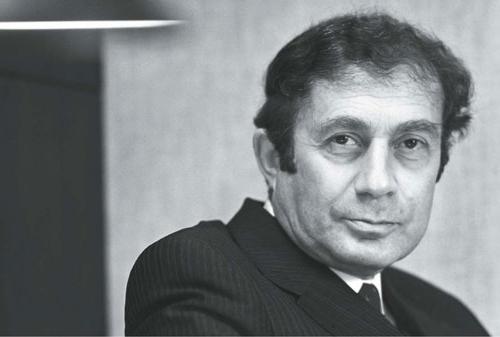
In works devoted to the peaceful period, Baklanov returns to the fate of former front-line soldiers, who turned out to be warped by a ruthless totalitarian system. This is especially vividly shown in the story "Karpukhin", where the life of the hero of the work was broken by official statelessness. According to the scripts of the writer, 8 films were made; the best film adaptation - "It was the month of May ...".
Military literature for children
Children's front-line writers made a significant contribution to literature by writing works for teenagers about their peers - like them, boys and girls who happened to live in wartime.
List of recommended teenage literature about the war:
- A. Mityaev "Sixth incomplete."
- A. Ochkin "Ivan - I, Fedorov - we."
- S. Alekseev "From Moscow to Berlin."
- L. Cassille “Your Defenders”.
- A. Gaidar "The Oath of Timur."
- V. Kataev "Son of the regiment."
- L. Nikolskaya "Must stay alive."
Front-line writers, the list of which, given above, is far from complete, in an accessible and understandable language for children conveyed the terrible reality of war, the tragic fate of people and the courage and heroism shown by them. These works foster the spirit of patriotism and love for the motherland, teach to value loved ones and relatives, to preserve peace on our planet.